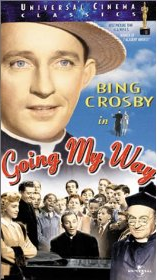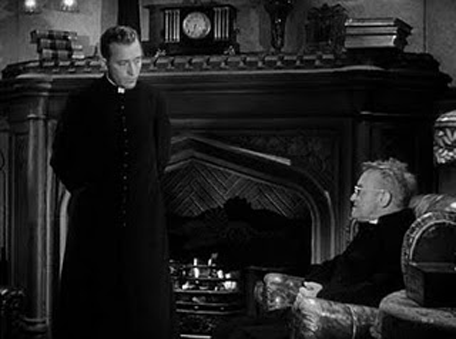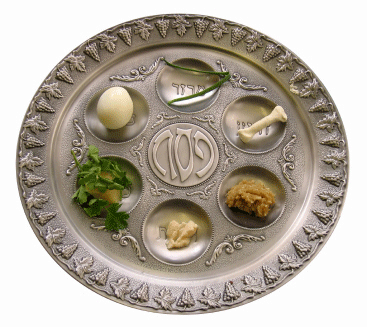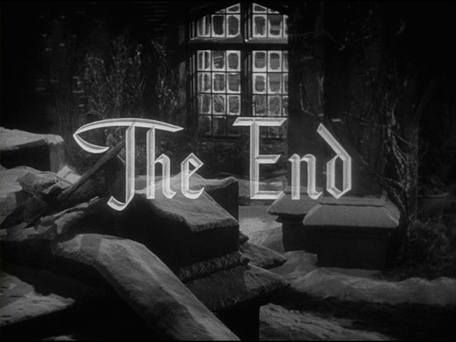Going My Way
 This prison has a closed circuit channel that makes daily announcements about programs, job openings, activities, etc. On weekends, the prison channel shows films from a collection of mostly donated DVDs. The prisoner who selects the films for viewing is a fan of old movies and a devout Catholic. For the first Sunday of Lent he picked "Going My Way" and "The Bells of St. Mary's." I saw them both years ago, but watched again with some new appreciation.They depict a simpler time to be a priest. The age of cynicism dawned in the decades since these marvelous films were created, and our world view is not the same. It got darker, and it seems that the more "enlightened" we become - the more we are tempted to rely solely on our own resources - the more cynical our world view becomes.It’s clear how very much that world view is shaped by the media. Hollywood's treatment of Catholics and the priesthood has sure changed since Bing Crosby donned a Roman collar.
This prison has a closed circuit channel that makes daily announcements about programs, job openings, activities, etc. On weekends, the prison channel shows films from a collection of mostly donated DVDs. The prisoner who selects the films for viewing is a fan of old movies and a devout Catholic. For the first Sunday of Lent he picked "Going My Way" and "The Bells of St. Mary's." I saw them both years ago, but watched again with some new appreciation.They depict a simpler time to be a priest. The age of cynicism dawned in the decades since these marvelous films were created, and our world view is not the same. It got darker, and it seems that the more "enlightened" we become - the more we are tempted to rely solely on our own resources - the more cynical our world view becomes.It’s clear how very much that world view is shaped by the media. Hollywood's treatment of Catholics and the priesthood has sure changed since Bing Crosby donned a Roman collar.

One of my friends watched The Bells of St. Mary's, then stopped by my cell to comment. He loved it, but added that today Hollywood would have Father O'Malley on administrative leave for his interest in turning a street gang into a choir.In the last few weeks, I have been having long discussions with a young prisoner who appeared in my cell one day. At 21, he's in his second year of a very long sentence for a very violent crime. He has shared with me that he has never met his father who is also in prison in some distant state. This young man is sullen and withdrawn, and puts a lot of energy into looking menacing. He is not an easy verbal communicator, and it sometimes seems that words come out of him only with painful effort. I had never seen him smile before yesterday.Robert learned only yesterday that I am a priest. He seemed shocked, and laughed for the first time since I've known him. His laugh wasn't driven by Hollywood. He said he laughed because he has been swearing in front of me for the last month, and I never even winced. Swearing is the least of Robert's problems, and just part of the day in here. Some days I don't hear many words longer than four letters. I don't swear myself, unless I'm quoting someone. Robert still comes by, and still swears, but he looks less menacing and smiles a lot more. "You're the only person anyone in here can trust," he said yesterday. Don't these guys read the papers?A few weeks ago, Bernadette in England posted a comment after "Questions from Readers of These Stone Walls." What she wrote seemed all too familiar to me:
"Recently my own parish priest told on his Blog of a meeting he had with a group of priests all nearing retirement. Talking about vocations they all said that they would actively discourage anyone who said they wanted to become a priest. My parish priest was the only one who said that if he had his time again he would still be delighted to be a priest. The others said that they definitely would not."
Some of my friends tend to see me as a sort of poster-priest for injustice, ill-treatment, and poor morale in the priesthood. When one friend read Bernadette's comment, she asked point blank what I would do if I knew at ordination what I know today: Would I still become a priest if I knew what was in store for me? Would I still become a priest if I had any sense of the suffering to follow? Would I still become a priest if I had any sense at all? Bear with me. My answers are coming.
NOT EXACTLY "GOING MY WAY"
It's ironic that I so idealized the priesthood depicted in "Going My Way" when just about nothing in my life as a priest has ever gone my way! My Lenten commitment last week to become ready to "wait in joyful hope" is a lofty goal.The same night that the priesthood questions were asked of me, a prison guard stopped by my cell. A local newspaper printed a story about the rising cost of so many prisoners. It contained an alarming statistic. In the last five years, the conviction rate in this state grew three percent, but the prison population in that same period grew 26 percent. The primary reasons for this are two-fold. First, sentences are much longer than in the past, so far more people come into the prison than leave it. Second, the state has a dismal rate of recidivism among younger prisoners: 57 percent of those under 30 who are released are back within a year for parole violations.The guard who was speaking to me about this has worked here for as long as I have been a prisoner. He asked me if I was anywhere near the end of my own sentence - whether I could see any light at the end of the tunnel. I explained that before my 1994 trial I was offered, in writing, a "plea deal" to serve one to three years in prison, and when I refused the deal the trial judge sentenced me to more than twenty times that amount. I could see that he was trying to work out the math so I just said it bluntly.
"I'm serving a sentence of 67 years when I could have left prison in less than three." Barring some intervention, I will leave prison at age 108 for standing by the truth when I could have left at age 44 had I been willing to lie. That's what Father Richard Neuhaus meant when he called this case "A Kafkaesque Tale."
The guard was visibly shocked at this. "If you had it to do all over again," he said, "I assume you would take the deal?" Well, we all know what "assume" means. I didn't answer, though I know what my answer is. I added this to the questions about priesthood asked above, and I'll tell you my answers soon. Bear with me.
A HARVEST OF MAROR
The brief conversation with the guard was the second time in an hour that I was asked to revisit my own history; to lament, "If only I knew then what I know now." The questions about revisiting the outcome of both priesthood and prison made me think of a dream I described in a recent post, "Forty Days and Forty Nights." It was a dream I had during Lent last year. I was present at a Passover meal, and when a plate was placed before me, it contained nothing but a pile of bitter herbs.I wrote last week that the symbolism for me was clear. The bitter herbs in a Seder meal are symbolic of the bitterness of the Jews' captivity in Egypt as described in Exodus 1:14. The Egyptians "made life bitter for them with harsh labor at mortar and bricks, and with all sorts of tasks in the field." At the Seder meal, the bitter herbs, "maror" in Hebrew, are dipped into "haroset" to represent the mortar the Hebrew slaves used to hold the bricks together. After last week's post, I received this very kind letter from Jacob, a Jewish friend in San Francisco:
At the Seder meal, the bitter herbs, "maror" in Hebrew, are dipped into "haroset" to represent the mortar the Hebrew slaves used to hold the bricks together. After last week's post, I received this very kind letter from Jacob, a Jewish friend in San Francisco:
"The bitterness of slavery is in essence the bitterness of injustice. It is from the latter that the former flows. Whether it is the Israelites in Egypt, Africans enslaved throughout the world, or any of the numerous other examples of what man is capable of, it is the injustice that cries out to God for pity, mercy and deliverance. That is why the Torah enjoins us not once, but thrice, to seek justice: "Justice, justice, justice shalt thou seek," and by implication we are thus enjoined to live lives of justice toward mankind, that we might rise above our animal instincts and be more like God.Yes, the bitter herbs symbolize the tears of bitterness and the flame of injustice that burns in the hearts of all those who unfairly suffer at the hands of others. You certainly have earned the dubious right to eat of the heartbreaking maror."
I felt strangely privileged after reading Jacob's letter. It's hard to explain why. "In the fullness of time," Jacob concluded his letter, "your good name will be restored to you." The Jews were delivered from captivity in a very big way. The Jews are our spiritual ancestors, and as such I have come to revere them as a people. Their story of trial and deliverance is our story as well. It’s the beginning of our own salvation history.Jacob's letter put my dream, and all that has happened to me in priesthood, into a context that gave meaning to suffering. That really is the essence of faith. Faith does not save us from suffering. It gives it meaning, and purpose, and a trust that God's design is far greater than our own.I remember very well the day I was ordained. It was June 5, 1982, and I was the sole priest ordained for the Diocese of Manchester that year. I remember vividly what was going through my mind as I lay face down on the floor before the altar that day while the choir chanted the Litany of the Saints. I was conscious of two things in particular: of how very much I am unlike those saints we were invoking in that very moment, and of how very great were their own trials and sufferings in the crosses they bore.As each saint’s name was chanted, I remember shuddering at how ill-equipped I felt to endure any of what they endured.But endure it I would. Believe me when I say that I have nothing in common with the saints I am so privileged to have in my corner. I need the examples of St. Maximilian Kolbe, St. Pio, St. Anthony of Padua, St. Therese of Lisieux, precisely because I am so very much unlike them. They pray and persevere when I cannot, and that is more often than you think!But I have learned one thing during the crucible of trial I have lived as a priest and as a prisoner. It is the one thing that I share in common with the bullpen of role models I invoke each day, and whose example I only hope to embrace. It is an awareness that has come to me with absolute clarity, forged with suffering and with sorrow.
It is a truth of which I no longer have any doubt: This life and this priesthood are not all about me. It is not about my happiness, my security, my hopes, or my dreams. It is about God's own plan for truth, sacrifice, and "justice, justice, justice," and I am but an instrument in that plan.
There is no score in this symphony I can write that is in any way distinctive. I play not a single note of suffering, sacrifice, and surrender that has not been played before and will not be played again. And if it follows that I would not be in prison today if I was not a priest – and I believe it does – then this imprisonment is not all about me either.So I think this answers the questions. Yes, I would still be a priest - God help me! - and no, I would never, ever take the deal. Not ever.
FATHER JOE COFFEY
We live in a culture in which terms like "commitment," "sacrifice," and "truth" are seen by many as malleable concepts. This certainly isn't so for Father Joseph Coffey, a U.S. Navy chaplain serving the spiritual needs of thousands of Marine, Army, and NATO forces in Afghanistan. A recent Catholic News Service report described Father Joe's ministry to "the men and women serving in the Taliban-infested Helmand Province." Father Joe moves among troops in outlying and very dangerous areas surrounding Camp Leatherneck and Camp Dwyer.I am very proud to say that Father Joe reads These Stone Walls and leaves an occasional comment. In a recent letter, Father Joe wrote, "How you stay upbeat is a modern miracle." I don't think he sees the irony in that. My priesthood doesn't involve facing Taliban insurgents and land mines and the daily face of war in the people around me. Father Joseph Coffey is courageously living the sacrifice of priesthood. In his letter, he asked for prayers for the Marines and others under his care. "I'll keep doing my best," he wrote.Father Joe Coffey has asked for my prayers, and I sacrifice a day in prison each week for him and for those he comes in contact with each day whether American, British or Afghani. Whenever I am tempted to let the bitterness of captivity be the sole measure of my life and priesthood, I think of Father Joe. I have never even met this man, and yet through These Stone Walls our lives and our priesthood are inexplicably linked. God help me if I shirk that duty of prayer and sacrifice.I thank Bernadette for telling us of her pastor's selflessness, and I hope she will forward this post to his blog, and congratulate him for seeing priesthood from beyond the level of his comfort zone.I also thank Jacob for reminding me of the Exodus, and his faithful assurance that justice will be restored in the fullness of time.And I thank Father Joe Coffey for reminding me with his life that the essence of priesthood is sacrifice, and that grace comes in even the darkest corners of life on earth …… as we wait in joyful hope for the coming of our Savior, Jesus Christ.

